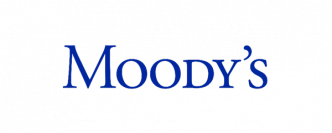Corporate Finance MSc

Key information
Duration: 12 months
Attendance mode: Full-time
Fees: £33,300 (more information)
Location: Bunhill Row
Start of programme: September 2024
Entry year: Showing course information for 2024
Boost your career prospects by specialising in one of the biggest, most popular areas of finance
Overview
Corporate Finance MSc Who is it for?
You don’t need experience in finance or accounting to join this course – just a keen interest in finance, and a desire to work in the finance industry. You will have studied or have evidence of skills in quantitative methods or finance. Most of our students have the equivalent of a UK upper second degree.
You’re ambitious, with your sights set on a career in corporate finance, as a finance professional for an investment bank, in a consulting firm, or in a corporation as a finance manager. And you’re ready to build networks with your classmates – top students from around the world – as well as the senior industry contacts you’ll meet through lectures and events.
Course objectives
This Master’s course in Corporate Finance is one of our most popular degrees. You’ll be taking your next step towards a successful career in the finance, consultancy or corporate sectors. In a wide-ranging, practical and up-to-date programme you’ll explore the big issues in corporate finance today including:
- how investors make decisions
- company valuations and profitability analysis
- IPOs, mergers and acquisitions
- private equity & venture capital
- risk management.
You can work on new skills, including programming Python to data visualisation, develop a deep understanding of the current concerns in corporate finance, apply your knowledge with a business research project and expand it with electives including international options. Learn in highly interactive lectures from staff with many years of practical experience and from guest lecturers from industry.
Teaching staff

Other module leaders include:
Dr Ivana Raonic
Dr Ivana Raonic on Financial Reporting: “The aim of this course is to equip students with critical understanding of the principles and practices of accounting, characteristics and limitations of accounting data. Students will learn how to prepare and interpret financial statements, to apply and comment on accounting policies and to use accounting information to assess financial performance of the business.”
Professor Ana Maria Fuertes
Professor Ana Maria Fuertes on Data Analysis for Finance: “This module is designed to give you knowledge of quantitative methods that can be effectively used to analyse financial data. Although some theory is needed to understand the methods, the emphasis is on a hands-on approach to provide you/students with practical skills.”
Dr Dirk Nitzsche
Dr Dirk Nitzsche on Financial Markets and Securities: “an introduction to different financial instrument as well as the they theoretical concepts used in finance. The emphasis in the module is very much on the practical applications of those theoretical concepts and issues such as should we really invest in the optimum weights or what can we expect from the stock market in the long term are being discussed.”
Dr Francisco Urzua
Dr Francisco Urzua on Advanced Corporate Finance: “This course provides students with an in-depth knowledge of corporate finance, complemented with cases and discussions of real life examples.”
Accreditation details
CIMA
CIMA is the world’s leading, and largest, professional body of management accountants.
Students successfully completing the MSc in Corporate Finance will be awarded exemptions from the following modules:
- BA3: Fundamentals of Financial Accounting
- F2: Advanced Financial Reporting
- F3: Financial Strategy.
ACCA
ACCA (the Association of Chartered Certified Accountants) is the global body for professional accountants.
Students successfully completing the MSc in Corporate Finance will be awarded exemptions from the following modules:
Knowledge
- F1: Accountant in Business
- F2: Management Accounting
- F3: Financial Accounting.
Skills
- F4 Corporate and Business Law (CL)
- F5 Performance Management (PM)
- F6 Taxation (TX)
- F7 Financial Reporting (FR)
- F9 Financial Management (FM)
CFA Program Partner
The CFA Institute, the global association of investment professionals, recognises the rigour and the relevance of the MSc in Corporate Finance and has awarded this course partner status. CFA Program Partner status is awarded to a select number of universities around the world whose degree courses incorporate at least 70% of the CFA Program Candidate Body of Knowledge. The CFA Program is the essential qualification for those wishing to pursue a career in the finance sector and the CFA Institute recognises the MSc in Corporate Finance as strong preparation for their professional exams.
Each year a number of CFA scholarships are available to Bayes students, offering financial assistance with the CFA exam registration fees.
Course content
On the Corporate Finance MSc, you will:
- Study at a world-renowned faculty, from staff actively engaged in research and advisory roles
- Gain exemptions from CIMA and ACCA exams while learning on a degree that’s a Chartered Financial Analyst Institute (CFA) Partner Programme
- Build international experience on electives in locations such as New York, Spain, Italy and Portugal or add an extra year’s study at LUISS or Bocconi business schools in Italy
- Develop skills that meet your ambitions with a wide choice of term 3 electives
- Learn from senior finance professionals and business leaders based close by in London’s Square Mile in guest lectures and seminars, and connect with them at networking events.
Course structure
Programme content is subject to change. We regularly review our module offering and amend to keep up to date and relevant.
Induction weeks
All of our MSc courses start with two compulsory induction weeks which include relevant refresher courses, an introduction to the careers services and the annual careers fair.
Term 1
Core modules:
Corporate Finance and Valuation
- 15 credits
- 3 hours per week in lectures
- 12 hours per week self directed study
The aim of this course is to introduce you to the field of corporate finance.
This is achieved by familiarising you with the core theoretical principles, and equipping you with the basic and most commonly used practical finance tools.
The material covered in this course is crucial for professional work in the area of corporate finance as well as for further study of more advanced or specialised corporate finance-related courses. It is relevant for financial officers, economists, investment bankers, analysts, and other decision makers.
The course is designed around several overarching principles such as the time value of money, market efficiency, and the goal of value maximisation.
The teaching material puts significant emphasis on relevant theories and their practical applications, and is informed by the pertinent academic research and examples from the corporate world from around the globe.
Financial Markets and Securities
- 15 credits
- 3 hours per week in lectures
- 12 hours per week self directed study
The aim of this course is to equip students with critical understanding of the principles and practices of accounting, characteristics and limitations of accounting data.
Students will learn how to prepare and interpret financial statements, to apply and comment on accounting policies and to use accounting information to assess financial performance of the business.The course will make it possible for you to:
- Prepare and interpret financial statements
- Comment on accounting policies and discuss their implications for the financial performance of the business
- Use accounting information to assess the financial situation of a company.
Research Methods in Modern Finance
- 10 credits
- 3 x 3 hour lectures over the ten week term
- 52 hours self directed study over the ten week term
Strong research is a key element of development strategy for companies and institutions, large and small.
This module aims to provide a grounding in financial research, particularly financial modelling and information gathering, which you will be able to use to support your learning on the rest of your course.
Data Analysis for Finance
- 15 credits
- 3 hours per week in lectures
- 12 hours per week self directed study
This module is designed to give you knowledge of quantitative methods that can be effectively used to analyse financial data. Although some theory is needed to understand the methods, the emphasis is on a hands-on approach to provide you/students with practical skills.
The module puts emphasis on the foundations of hypothesis testing and estimation of econometric models that can be used for prediction and pricing.
Financial Reporting.
- 15 credits
- 3 hours per week in lectures
- 12 hours per week self directed study
The course will make it possible for you to:
The module gives you an understanding of the principles and practices of accounting, the characteristics and limitations of accounting data.
You will be able:
- to prepare and interpret financial statements
- to comment on accounting policies and to discuss its implication for the financial performance of the business
- to use accounting information to assess the financial situation of a company.
Term 2
Core modules:
Advanced Corporate Finance
- 15 credits
- 3 hours per week in lectures
- 12 hours per week self directed study
The aim of this course is to develop an understanding of modern corporate finance so that the corporate manager, the investment banker and the financial analyst will have the conceptual foundations for making informed corporate assessments of key financial decisions.
This course provides students with an in-depth knowledge of corporate finance, complemented with cases and discussions of real life examples.
Corporate Risk Management
- 15 credits
- 3 hours per week in lectures
- 12 hours per week self directed study
The module will make it possible for you to acquire an understanding of the principal objectives and constraints of corporate risk management.
The aim of this module is to provide you with an understanding of the multinational corporation, the global risk management markets and the use of derivatives and other hedges to mitigate risk exposures.
Financial Statement Analysis
- 15 credits
- 3 hours per week in lectures
- 12 hours per week self directed study
The ability to understand and analyse financial statement information is a key skill in a wide range of business activities, from managing a corporation to investing in securities.
This module leverages many materials from bulge bracket and boutique investment banks to showcase how various techniques covered in the module are used by professionals from the Wall Street, providing students with hands-on experience in analysing and interpreting financial information disclosed by firms listed on major stock exchanges.
Topics in Mergers and Acquisitions.
- 15 credits
- 3 hours per week in lectures
- 12 hours per week self directed study
Students will learn how companies use M&A transactions to implement their strategic plans and how such transactions are structured and analysed.
Emphasis is given to applied financial analysis, case studies are used throughout the module and lectures are complemented by guest presentations given by M&A practitioners.
Term 3
You may choose from these three options in your final term.
- Option 1: Students can opt to write a 10,000 word business research project (40 credits) and take one specialist elective module (1 x 10 credits).
- Option 2: Students can take five specialist elective modules (5 x 10 credits).
- Option 3: Students can opt to write a 3,000-5,000 words Applied Research Project (20 credits) and take three specialist elective modules.
Electives offered in 2023
- Advanced Company Valuation
- Corporate Restructuring
- Ethics, Society and the Finance Sector
- Hedge Funds
- Intro to Python
- Private Equity Investment
- Technical Analysis and Trading Systems
- VBA with Application for Finance.
International electives
- FinTech (taught in Italy)
- Investment Strategy (taught in New York, USA)
- Project Finance and Infrastructure Investment (taught in Madrid, Spain).
More about elective modules at Bayes
Please note that electives are subject to change and availability.
Projects
Business Research Project
It is important for aspiring professionals to demonstrate, on an individual basis, their ability to apply concepts and techniques they have learned in an in-depth study of a topic of their choice and to organise their findings in a report, all conducted within a given time limit.
To train you to undertake individual research and provide you with an opportunity to specialise in a contemporary business or finance topic related to your future career aspirations.
You are required to submit a project of approximately 10,000 words on any subject area covered in the rest of the programme.
Typical projects can involve any of the following: extracting data from electronic databases or by hand; statistical analysis of large or small populations; interviews; case studies of an industry or a sector or of a business / finance issue in a particular country setting.
Applied Research Project.
The aim of this module is to enable you to demonstrate how to integrate your learning in core and elective modules and then apply this to the formulation and completion of an applied research project.
You will be required to demonstrate the skills and knowledge that you have acquired throughout your MSc study.
You will undertake a short piece of applied research on a question of academic and/or practical relevance. Guidelines will be provided in order to help you identify the research question.
Based on your chosen topic, you must write a report of around 3,000–5,000 words that summarises and critically evaluates your method and your findings.
Download course specification:
Corporate Finance MSc [PDF]Assessment methods
Term dates
Term dates 2024/25
- Induction: 9th September 2024 - 20th September 2024
- Term one: 23rd September 2024 - 6th December 2024
- Term one exams: 6th January 2025 - 17th January 2025
- Term two: 20th January 2025 - 4th April 2025
- Term two exams: 21st April 2025 - 2nd May 2025
- Term three - international electives: 5th May 2025 - 16th May 2025
- Term three: 19th May 2025 - 4th July 2025
- Term three exams: 7th July 2025 - 18th July 2025
- Resits: 11th August 2025 - 22nd August 2025
- Additional resit week - tests only: 25th August 2025 - 29th August 2025.
Timetables
Course timetables are normally available from July and can be accessed from our timetabling pages. These pages also provide timetables for the current academic year, though this information should be viewed as indicative and details may vary from year to year.
Please note that all academic timetables are subject to change.
Fees & funding
UK/Home/International fee
2024 entry
£33,300
Tuition fees are subject to annual change.
Deposit: £2,000 (paid within 1 month of receiving offer and non-refundable unless conditions of offer are not met).
First installment: Half fees less deposit (payable during on-line registration which should be completed at least 5 days before the start of the induction period).
Second installment: Half fees (paid in January following start of course).
Scholarships & bursaries
Scholarships, sponsorships, loans and other funding could support your education at Bayes Business School.
Learn about the cost of living as a Bayes student in London.
View our scholarships and fundingCareers
The MSc in Corporate Finance prepares you for a successful career in the finance industry, consultancy, accounting or a finance department at a global corporation. Recent graduates are now working as associates in wealth management, investment banking analysts, M&A analysts and corporate finance analysts for international banks, corporations and professional services firms.
You’ll get support and advice on your career from our specialist team, who will encourage you to make the most of our close relationships with the biggest names in corporate finance.
Class of 2022
Recent graduates have secured positions such as:
Job titles:
- M&A Analyst
- Equity Research Associate
- Climate Risk Analyst
- Business Analyst
- Senior Consultant
- Corporate Finance Associate
- Relationship Manager
- Credit Analyst.
Download our latest MSc Employment Report
Recent employers
Alumni stories
Entry requirements
- A UK upper second class degree or above, or the equivalent from an overseas institution
- Some level of previous study or evidence of skills in finance or quantitative methods is essential
- Work experience is not a requirement of this course.
GMAT
- GMAT is not required for application, but may be requested as a condition of offer at the discretion of the Admissions Panel.
English language requirements
If you have been studying in the UK for the last three years it is unlikely that you will have to take an English language test.
If you have studied in the UK at degree level for less than three years (e.g. 3+1, 2+1, 2+2, etc.) you will be required to provide the results of an approved English language test and possibly resit the test to meet our academic entry requirements.
Full list of approved English language tests/qualifications and minimum requirements.
Apply
Please see our Application Guide for details of the documents you will need to supply as part of your application, and other useful information.
We cannot comment on individual eligibility before you apply. We can only make a decision on your application once it is fully complete, with all requested information received.
Individual Appointments
If you would like to arrange an individual appointment to discuss the application process and be given a tour of the facilities, please complete this form.
Please note - these are subject to availability.
Terms and conditions
Students applying to study at Bayes Business School are subject to City, University of London's terms and conditions.
Student life
-
Have a question about student experience at Bayes?
Talk one-on-one with a student who is currently studying at Bayes.
Contact us
Speak to one of our staff from Master's programmes teams.













